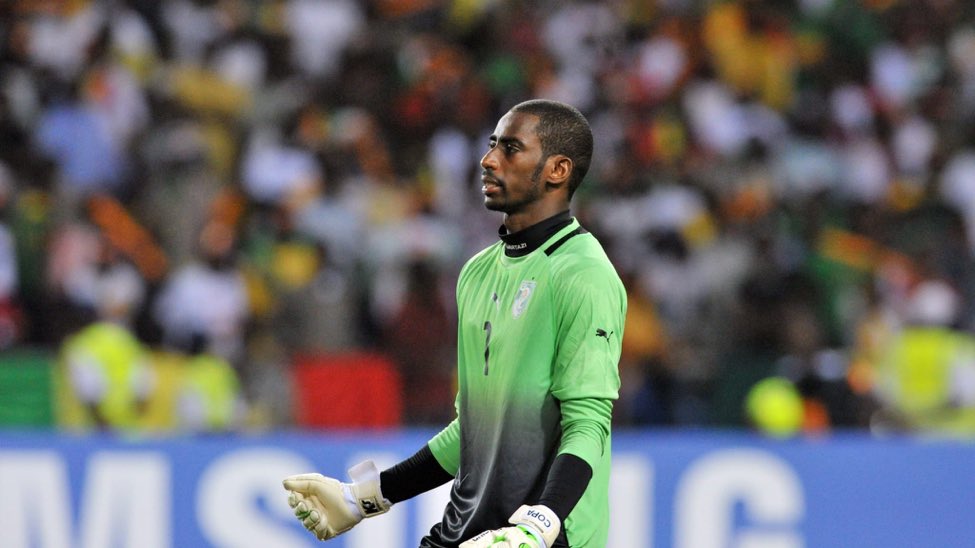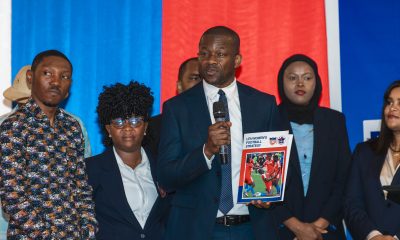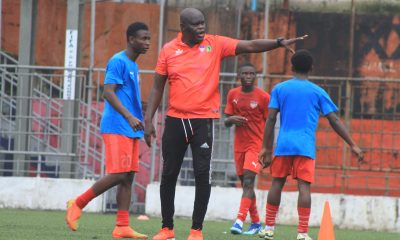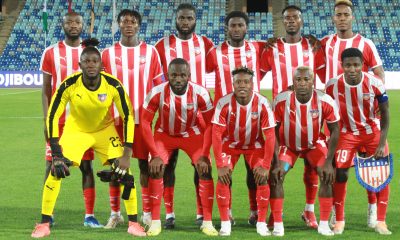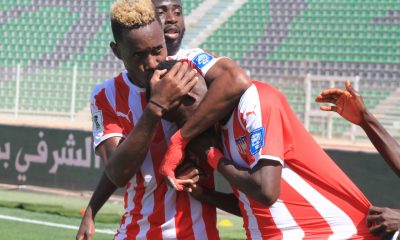Arguably Ivory Coast’s very best man between the sticks, Copa’s name will stick for a while.
Notably remembered for his incredible heroics in the 2015 tournament that brought an end to Ivory Coast’s 23-year search for the Africa Cup of Nations gong, it will take some real talent-hunting for the West African French-speaking country to find his like again.
Forming core of what was then a golden generation of Elephants – a formation that looked up to Drogba for leadership –Barry is capped internationally 80 times.
Last Saturday, he closed the curtain on his career to pick up a job as a goalkeeper coach at Belgian First Division B side OH Leuven.
That retirement is prompted by the failure to get regular minutes as he went a whole two-year without a game under his belt, contending as an understudy for Belgian-born Gilikens. By virtue of his new role, he will now be coaching the man who’d elbowed him out of his first-team regular spot but only good will be expected in that relationship.
Often teased as late rapper Tupac’s doppelganger, it all began for Boubacar Copa Barry at 26-time local domestic premier league champions ASEC Mimosas in 1999. His three-year stay there was a memorable one. Under the tutelage of Jean-Marc Guillous, it was the then French national team player’s plans to revolutionize Mimosas, replacing the old players with younger ones.
Swift scouting saw Boubacarr become one of those fresh-faced teenagers picked by Jean-Marc whose insistence to field young players was met with pockets of resistance by the club’s board.
Undeterred, he matched on building a team of 18-year-olds that Esperance du Tunis then chairman Slim Chiboub called a “scandal to be playing against children” when Mimosas met the Tunisians in the CAF Super Cup. Barry was key in the fixture as they trounced Esperance 3-1. Half of that team like, Copa, turned professional, metamorphosing into the senior Elephants’ team that represented Africa in the 2006 World Cup.
Prior to that, a near thirty-six months stay at Rennes’ reserves followed before he switched to Belgium in search of first-team opportunities. The adventure proved to be a defining one as he played on there for sixteen years till the time he hung up his gloves.
His greatest breakthrough at club level was from 2007-2017 at the Tricolours, Lokeren, making 239 appearances and scoring once.
In the interim, he and his compatriots have been out and about looking for continental success. They got swaggered over in the finals of the Nations Cup in 2006 and 2012 by Egypt and Zambia respectively.
Two years later Didier Drogba, apparently disillusioned over Ivory Coast’s repeated failed attempts to secure the AFCON, the sole title missing in his trophy cabinet, chose to retire.
Barry, Yaya Toure, Kolo and Gervinho were the remaining experienced heads in the Ivorian setup. By this time, most of them doubted they will ever get past the group stages. Adding to it all, Copa was almost peripheral in the manager’s list of players considered in the starting line up.
In the modern game where size is viewed as a determinant on how a goalkeeper should look like, pint-sized Boubacar’s diminutive figure meant he had to pull off the extraordinary each time to be taken seriously. But he defied that logic going from a surplus to a required player to a superstar.
In fact, throughout his career, he’d had to prove critics wrong. There were calls from some quarters, though not incessant, for his replacement and hence Herve Renard’s decision to pick Slyvain, who to the Leuven custodian’s dismay, was in the form of his life.
However, the god of football sprinkled his portion on Copa, in the process, inspiring a troubled Ivory Coast through a now 39-year-old Barry who replaced injured first-choice Sylvain Gbohuou in the finals of the 2015 AFCON.
He rose to billing in the finals saving shots from regular playtime through to the end of extra-time. In the nerve-racking post-game penalties, the Lokeren net-minder blocked two spot-kicks before going on to score the winning goal, as joy swept Ivory Coast off its feet –breaking a 23-year wait on a major trophy for the Elephants.
“I have been criticized, but I am able to progress,” an emotional Barry told Canal+ then.
“I’m not big in talent nor in size, but I want to progress, I worked for the team. My mum suffered. Thanks to her, thank you to all Ivorians. Football allowed me to travel, there is no room for everyone; but there is room for the work. God rewarded me.”
As he takes his first move post his football career into coaching, it will be a totally new experience –one he wouldn’t mind throwing a shot at.
Barry’s trade did not take off glamorously like compatriots Didier Zakora, Gervinho, Drogba and the Toure brothers who went on to play for Arsenal, Liverpool, Barcelona and Manchester City. He will, however, look back at his career contented that he is an African champion.
